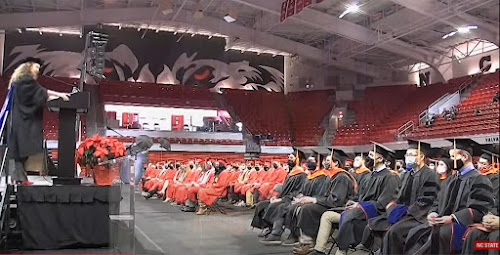 |
| Ai Interns took to video call for the annual group photo. |
There's no doubt that 2020 has been a year for the history books. Due to the Coronavirus pandemic, our world has changed dramatically over the past few months, causing many to have to move all of their work home.
The Autonomy Incubator values their internship programs, where undergraduate and graduate students are given the opportunity to gain real-world experience at NASA. Though this summer took an unexpected shift, Ai head Danette Allen made sure to still offer high-quality experiences for this year's interns.
Without further ado, let's meet who will be working with us this summer!
 |
| Carson Adcock |
First is Carson Adcock, a rising junior Computer Science major at George Mason University. This is his first official internship with the Autonomy Incubator, but he is no stranger to the team. Carson has been volunteering with us since September of 2017.
During his internship, he will be using Blender and Creo to create and polish 3D accurate models for the Ai's simulations.
**TRADEMARK
PHOTO
Next up is Nate Hartley, a senior Computer Science major at Duke University. This is Nate's first summer working with the Autonomy Incubator; however, his sister is Abbey, the former Social Media intern from 2015 to 2017.
This summer he will be working on creating a database and website to display different sensor characteristics as well as helping with human-machine learning experiments.
PHOTO
Third is Amanda Heyman, sister of yours truly. She just graduated from Christopher Newport University with degrees in Psychology and French and will soon begin her graduate studies at the University of Michigan for Social Work.
This summer she will be working with Meghan Chandarana at the Ai, where they will be researching and developing an experiment related to human-machine interaction, focusing on characterizing the cognitive limitations of human operators managing multiple-agent teams.
 |
| Payton Heyman |
Finally, it is I, Payton Heyman, back for another summer as the Ai's Social Media Intern. After finishing my second year at the Savannah College of Art and Design, I'm ready to bring my social media skills to the test during this virtual internship. Get ready for a summer of green screens and video calls! ;)
 |
| It wouldn't be a celebration without a round of high-fives. |
We're so happy to still be able to intern this summer despite the circumstances. I look forward to seeing all of the great projects, and we hope you are too!












